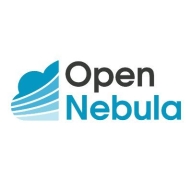


OpenNebula and Morpheus are competing products in the cloud management platform space. Morpheus seems to have the upper hand due to its robust features and comprehensive automation capabilities.
Features: OpenNebula is lightweight, easy to deploy, and offers simple setup with efficient resource management. It provides good integration with hypervisors and supports VXLAN for network management, making it ideal for creating private clouds. Morpheus offers multi-cloud orchestration, strong API-based integrations, and cost optimization features with user-friendly UI and automation capabilities.
Room for Improvement: OpenNebula could benefit from enhanced automation features, broader multi-cloud support, and a richer set of user support options. Morpheus could improve by refining its self-service catalog, providing more tailored features for specific cloud environments, and addressing underutilized third-party integrations.
Ease of Deployment and Customer Service: OpenNebula provides an easy deployment with straightforward installation, suited for organizations seeking simple solutions. Morpheus offers extensive support but involves a more complex setup. Its superior customer service and flexibility in deployment configurations enhance its appeal to larger enterprises.
Pricing and ROI: OpenNebula is attractive for cost-conscious businesses with lower initial setup costs and faster ROI. Morpheus involves higher setup costs but promises long-term ROI through enhanced efficiency and feature-rich offerings, providing value for a higher investment.



IBM Turbonomic offers automation, planning, and right-sizing recommendations to streamline resource management, improve efficiencies, and optimize costs across virtualized environments and cloud platforms.
IBM Turbonomic is valued for its capability to optimize resource allocation and monitor virtual environments efficiently. It facilitates automated decision-making in VM sizing, load balancing, and cost optimization for both on-premises and cloud deployments. Users can leverage insights for workload placement, ensure peak performance assurance, and effectively right-size across VMware and Azure. The ongoing transition to HTML5 aims to improve visual and navigational ease, while expanded reporting features are anticipated. Opportunities for improved training, documentation, and integrations enhance platform usability and functionality.
What Are the Key Features?In finance, IBM Turbonomic aids in maintaining platform efficiency during market fluctuations. Healthcare organizations leverage its capability for resource optimization during high-demand periods to enhance patient care support. Retailers use it for planning in peak seasons, ensuring resources align with fluctuating demand to maintain performance continuity.
Morpheus is a 100% agnostic cloud management platform (CMP) designed from the ground up to unify management of multi-cloud and hybrid IT while empowering DevOps teams with self-service provisioning of bare metal, VM, and container-based application services.
OpenNebula provides the most simple but feature-rich and flexible solution for the comprehensive management of virtualized data centers to enable private, public and hybrid IaaS clouds. OpenNebula interoperability makes cloud an evolution by leveraging existing IT assets, protecting your investments, and avoiding vendor lock-in.
OpenNebula is a turnkey enterprise-ready solution that includes all the features needed to provide an on-premises (private) cloud offering, and to offer public cloud services.
We monitor all Cloud Management reviews to prevent fraudulent reviews and keep review quality high. We do not post reviews by company employees or direct competitors. We validate each review for authenticity via cross-reference with LinkedIn, and personal follow-up with the reviewer when necessary.